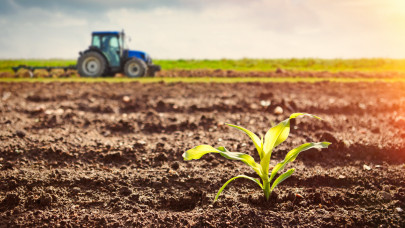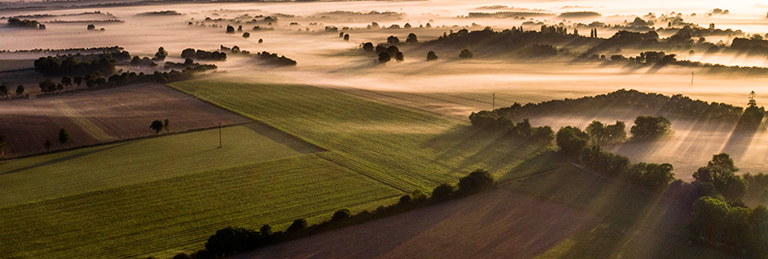Honourable Members of the European Parliament, fellow Commissioners, esteemed members of the Knowledge for Innovation Forum, ladies and gentlemen.
I am honoured to address the 6th Knowledge and Innovation Summit held in the Parliament. I want to thank Lambert van Nistelrooij, the Chairman of the Knowledge for Innovation Governing Board, for inviting me here this evening. MEP van Nistelrooij has a track record of successfully creating synergies between innovation, regional and rural development through his work on the reform the European Structural Funds in the last legislature.
I would also like to thank the Knowledge for Innovation Vice-Chair, Jerzy Buzek MEP. To have MEP Buzek on board, a former Prime Minister of Poland, the current Chair of the ITRE committee and a former President of the European Parliament on board, is a tribute to the quality and political weight of the Knowledge for Innovation Forum.
This is my first speech as Commissioner for Agriculture and Rural Development in the walls of this fine, democratic institution since I took up office at the beginning of this month.
Indeed it feels like a return home. As those of you who may have attended my hearing in Comagri will be aware, I am a politician first and foremost! The Juncker Commission will be political, in the sense of working hand in hand with the Parliament, listening to the voice of European citizens and acting on their guidance.
Innovation in agriculture is a key priority in my mandate as Commissioner for Agriculture and Rural Development, something which I made clear in my Parliamentary hearing. Agriculture and rural Development are part of the Jobs, Growth, Investment and Competitiveness priority at the heart of the Juncker Commission. Indeed, I have already begun working with Vice-President Katainen on the key Project Team linked to this priority.
Agriculture has always been an innovative sector. Most of the farms of today have little in common with the farms of the 1950s. And the farms of 2050 will probably differ significantly from the farms of today.
European farming is an innovative sector: farmers have delivered on the societal goals of food security, food safety and quality. They have achieved this whilst protecting the environment and being more resource efficient.
However, the challenges and also the opportunities that are ahead of us are as great today as they were 60 years ago.
Food security is a bigger challenge than ever, with a global population expected to reach 9.6 billion people by 2050.
World food systems will have to increase in efficiency and productivity to ensure that people have access to the food they need. We will have to do more with less, through greater use of recycling, up-cycling and above all, wasting less. EU agriculture should be at the forefront of this efficiency drive.
Part of this will be to encourage young innovators to see farming as an attractive, high tech and rewarding career. I am glad that the new Common Agricultural Policy goes a long way to increasing the appeal of farming as a career.
Innovative agriculture should also ensure the protection of natural resources, biodiversity, landscape, soil and water, and increase the environmental and climate benefits that farming provides.
The Rural Development Programme will stimulate rural areas to strengthen and diversify economic activity. The rollout of fast broadband everywhere will see greater use of data collection and data analytics in crop and livestock management. To use two concepts that you will hear more often in the future: this is Big Data for Precision Farming. Biomass, bio-energy and the bio-based economy will develop further.
Innovation is the key to sustainable rural development: through innovation, we can maintain the competitiveness of the agri-food sector and create more and better jobs in rural areas, all the while safe-guarding the planet for future generations.
Innovation is happening everywhere, today. In Europe, scientists, industry and farmers, collectively and individually are currently working on new ways to produce, store and market food products. And it is happening all along the value chain, from upstream science to downstream investments, via social innovation.
For example, smart farming systems using cameras, sensors and other forms of technology are being tested to improve irrigation efficiency or reduce use of pesticides by improving detection of diseases; EU seedbanks contain a wealth of genetic material that can be exploited to develop new varieties.
Similarly, while people still wonder whether we´ll ever see or even want self-driving cars in our cities, we have automated farming machinery working today. European industry is a global leader in robotic farming – this innovation is already in motion!
But our agricultural innovation system needs to be strengthened and further developed. There is a massive potential and also a pressing need to do more.
There is evidence that the links between research, farmers and the industry are still too weak. Too many innovations are still left unexploited and too many research questions from the sector remain unanswered.
Agricultural knowledge and innovation systems need to be made more efficient and interactive.
The new tools we have put on the table for 2014-2020 are there to ensure we really succeed.
Today, I would like to highlight two dedicated agricultural and forestry innovation instruments:
Firstly, the European Innovation Partnership, or EIP, on "Agricultural Productivity and Sustainability".
Secondly, the European research and innovation programme Horizon 2020, through which we have doubled our efforts on food, agriculture, forestry and marine research to reach nearly 4 billion euros for 2014-2020.
Ladies and Gentlemen,
What is the EIP?
"Agricultural Productivity and Sustainability" is a European initiative setup to boost innovation through networking and collective work, though European level activities as well as in ground-level projects throughout the EU.
The strategy of the agri EIP is to bring partners from research, farming, industry, NGOs and the advisory sector together in ´operational groups´ to work on common innovative projects funded under the rural development programmes.
People participating in these groups will not only be linked to their project partners, but also to other European counterparts through an EU-wide network.
Through this approach, a solution found to a specific problem in one place can be easily transferred to other, comparable situations.
The European Commission is available to assist managing authorities to reap the full benefit of this new framework as they develop the final version of their Rural Development Programmes.
I sincerely hope that this will enable tailored implementation and will result in a great success.
Ladies and Gentlemen,
Agricultural research in Horizon 2020
In parallel to our efforts in rural development policy, we are delivering a considerable boost to agriculture and forestry research through Horizon 2020. The budget has been doubled compared to the previous programming period.
Support to research and innovation is coupled together to develop cross-thematic activities and avoid traditional research in "silos". The goal is to ensure that Europe produces world-class science, removes barriers to innovation, delivers research from universities and institutes to the farm gate and the rural economy, and makes it easier for the public and private sectors to work together in making innovation happen.
In my area, I want to concentrate on 3 main priorities:
1) increasing the efficiency, sustainability and resilience of primary production, while increasing its capacity for climate change mitigation and adaptation;
2) providing ecosystem services and public goods; and
3) empowering rural areas to enhance support for innovation.
I will in particular ensure the coherence between the EU´s food security and climate change objectives.
Under Horizon 2020, new project formats have been created which match the EIP concept. "Multi-actor projects", in the jargon, are research projects where farmers and other end-users will be involved "all along the project": here farmers should not just be the object of study but encouraged to be centrally involved in creating solutions.
Horizon 2020 will contribute to deepening the knowledge base in fields such as soil fertility, plant and animal health, and the functional role of biodiversity. Moreover, the fact that agricultural research and innovation under Horizon 2020 are now closely coordinated with the CAP (via innovation support under Rural Development) is a golden opportunity to bolster innovation actions at local level. This will result in more knowledge-based EU agriculture and forestry.
This 6th Innovation Summit is, I believe, a great occasion to debate innovation policy for all sectors and for agriculture, forestry and rural development in particular. I look forward to rich debates and will study the summit´s outcomes very carefully.
I would like to conclude my remarks by quoting the President of the European Parliament, Martin Schulz MEP, who only last week when hosting the leadership of Milan Expo, made a telling contribution:
"Today's farmers are new Renaissance men: they must possess the right mix of science, economics, entrepreneurialism, and environmental awareness to meet the challenges of the future."
I could not have said it better. And it sums up why from now on innovation and agriculture always have to go together. Thank you.
Source: europa.eu






